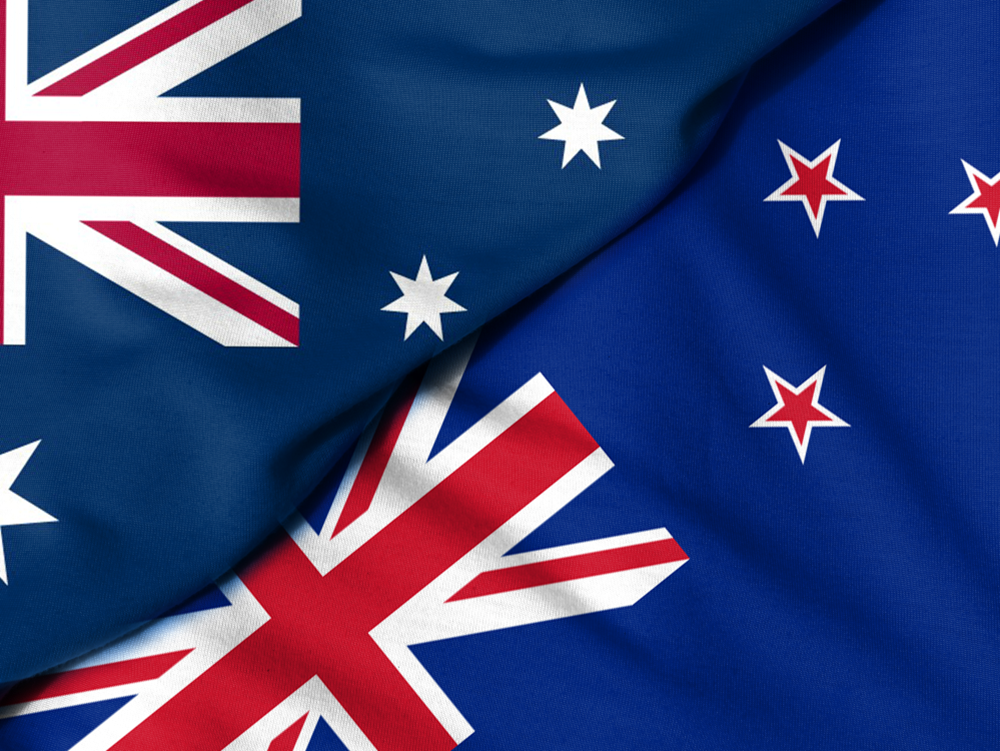Trade (Australia and New Zealand) Bill completes passage through Parliament
21 March 2023
The Trade (Australia and New Zealand) Bill had its third reading, a chance for members to make sure the eventual law is effective, workable and without loopholes, on Monday 20 March.
Following agreement by both Houses on the text of the bill it received Royal Assent on 23 March. The bill is now an Act of Parliament (law).
The Trade (Australia and New Zealand) Bill will implement in UK domestic law the government's obligations in the Free Trade Agreements with Australia and New Zealand.
Final checks
Third reading is a chance for members to ‘tidy up' a bill, making small changes to the text to ensure it is effective.
No amendments (changes) were suggested ahead of third reading.
Members discussed the progress of the bill through the House at the conclusion of Lords stages.
Catch up
- Catch up on Parliament TV
- Read the Lord Hansard transcript
Explore further information
Read background on the bill in the Lords Library briefing.
Next steps
Following completion of third reading, the bill now returns to the Commons for consideration of Lords amendments.
What's happened so far?
Report stage: Tuesday 14 March
Report stage is an extra chance for members to closely scrutinise elements of the bill and make changes.
Proposed changes
Members speaking at report stage put forward amendments (changes) to the bill to be discussed.
The amendments covered the impact of the procurement chapters on environmental, food and animal welfare standards, British farmers and biodiversity.
How to follow
- Catch up on Parliament TV
- Read the Lord Hansard transcript
Committee stage: Monday 23 January
Committee stage is the first chance to check the bill in detail and make changes.
Proposed changes
Members speaking at committee stage put forward amendments (PDF) (changes) to the bill to be discussed .
The amendments covered a range of subjects including:
- assessing the impact of the legislation on UK farmers, the market for food in the UK and food safety standards
- requiring impact assessments on small businesses, labour rights, climate change and the NHS
- ensuring changes made to the bill won't be replaced by provisions under the Procurement Bill which is currently progressing through the House of Commons
- adding a 'sunset clause' to the legislation allowing it to expire after a given amount of time.
Catch up
- Catch up on Parliament TV
- Read the Lord Hansard transcript
Second reading: Monday 9 January
Members discussed the main issues in the bill and drew attention to specific areas where they thought amendments (changes) were needed during second reading. Topics covered during the debate included:
- environmental standards in the UK, Australia and New Zealand
- non-tariff barriers to trade
- protections for UK farmers.
Members speaking
Lord Johnson of Lainston (Conservative), Minister for Investment, opened the debate and responded on behalf of the government.
Members speaking in the debate include:
- Lord Goodlad (Conservative) and Baroness Liddell of Coatdyke (Labour), former UK High Commissioners to Australia
- Lord Kerr of Kinlochard (Crossbench), member, Lords International Agreements Committee
- Lord Lennie (Labour), Lords Labour spokesperson for international trade
- Lord Purvis of Tweed (Liberal Democrat), Lords Liberal Democrat spokesperson for international trade and foreign affairs.
Lord Swire (Conservative), Deputy Chair of the Commonwealth Enterprise and Investment Council and former Foreign Office minister, made his maiden speech in the House of Lords during the debate.
Catch up
Find out more about the issues discussed: catch up on Parliament TV or read the Lords Hansard transcript.
Image: AdobeStock
